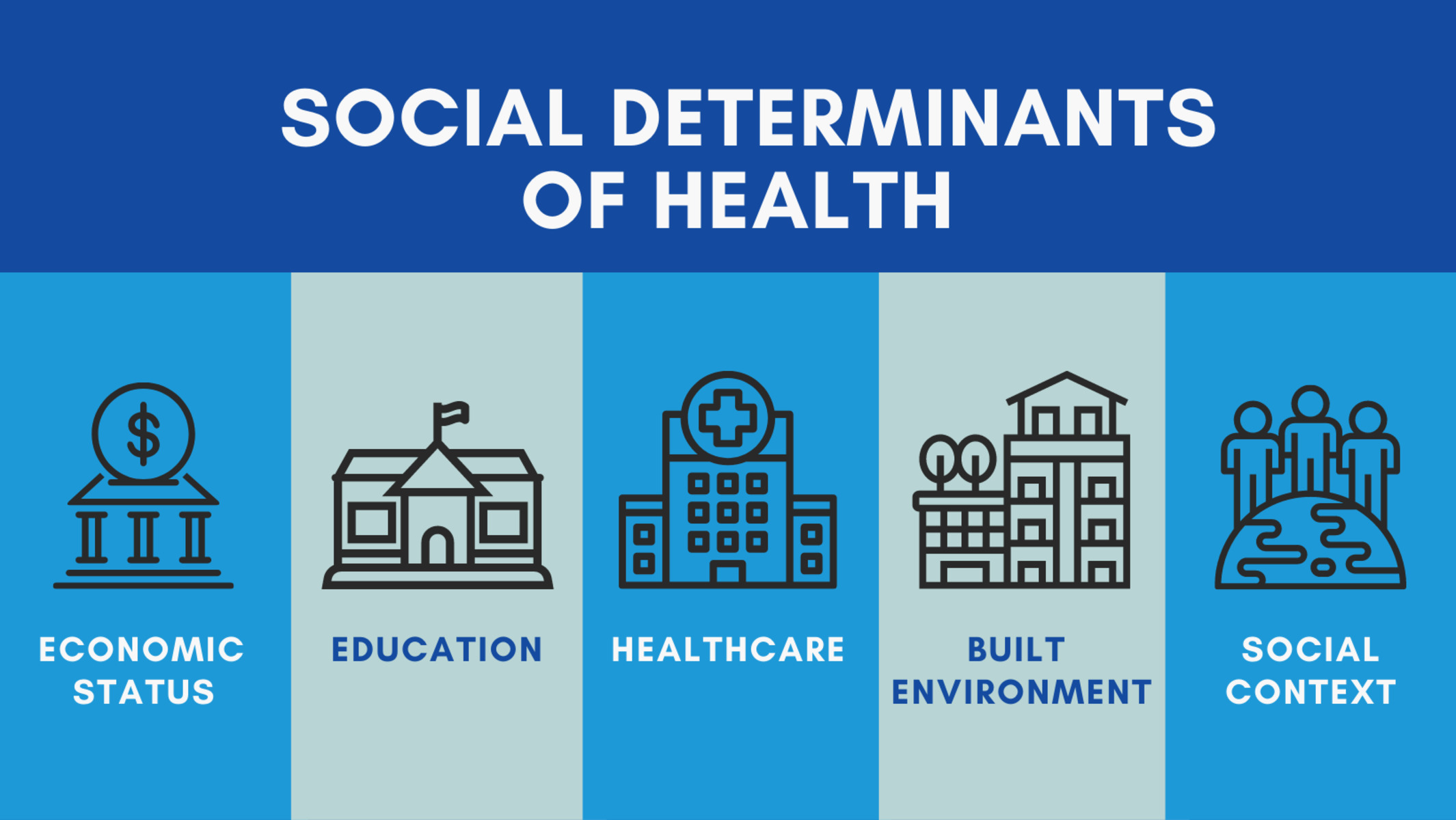
When it comes to understanding health and well-being, it’s crucial to take into consideration the social determinants of health. These are the various social and economic factors that can impact an individual’s health outcomes and overall quality of life. From access to healthcare to income levels, education attainment, and community resources, social determinants play a significant role in shaping our well-being.
In this article, we will explore 16 intriguing facts about social determinants of health that shed light on the complex interactions between society and individual health. By delving into these facts, we aim to provide a deeper understanding of how various social factors influence our health and why addressing social determinants is essential for creating a healthier society. So, let’s dive in and unveil the fascinating world of social determinants of health!
Key Takeaways:
- Social determinants of health, like income, education, and neighborhood, greatly impact our well-being and health outcomes. Addressing these factors is crucial for promoting health equity and reducing disparities.
- Advocacy, policy change, and multi-sectoral collaboration are essential in improving social determinants of health and creating healthier communities. Investing in these areas can lead to better overall population health.
Social determinants of health are the conditions in which people are born, grow, live, work, and age.
Social determinants of health are the social, economic, and environmental factors that influence individuals’ health outcomes and well-being.
Income and social status are major social determinants of health.
Individuals with higher income and a higher social status generally have better access to healthcare, education, and other resources that contribute to better health outcomes.
Education plays a crucial role in determining health outcomes.
Higher levels of education are associated with better health behaviors, increased access to healthcare, and improved overall health status.
Social support networks are important for maintaining good health.
Having strong social support networks can help individuals cope with stress, improve mental health, and promote healthy behaviors.
Neighborhood and physical environment affect health outcomes.
Living in neighborhoods with clean air, safe streets, access to nutritious food, and recreational facilities positively impacts health.
Discrimination and racism have detrimental effects on health.
Experiencing discrimination or racism can lead to chronic stress, mental health issues, and poorer health outcomes.
Access to healthcare services is a critical social determinant of health.
Unequal access to healthcare services can contribute to health disparities and inequalities.
Social determinants of health can lead to health inequities.
Health inequities refer to unjust and avoidable differences in health outcomes between different population groups.
Early life experiences have a lasting impact on health and well-being.
Adverse experiences during childhood, such as trauma or poverty, can have long-term effects on physical and mental health.
Healthier communities lead to healthier individuals.
Investing in community development, infrastructure, and social programs can improve overall population health.
Social determinants of health vary by population groups.
Factors such as race, ethnicity, gender, and age can influence the social determinants of health experienced by individuals.
Addressing social determinants of health requires a multi-sectoral approach.
Solutions to improve health outcomes must involve collaboration between healthcare, education, housing, and social service sectors.
Policies and interventions can help reduce health inequities.
Implementing policies that promote equity, such as increasing access to affordable housing or improving educational opportunities, can reduce health disparities.
Social determinants of health have a significant economic impact.
Health disparities and inequities lead to increased healthcare costs, decreased productivity, and economic burdens on communities.
Health promotion efforts should address social determinants of health.
Effective health promotion initiatives should focus not only on individual behaviors but also on addressing the underlying social determinants of health.
Social determinants of health can be improved through advocacy and policy change.
Advocacy efforts and policy change at local, national, and global levels play a crucial role in addressing social determinants of health and promoting health equity.
Conclusion
In conclusion, social determinants of health play a crucial role in determining an individual’s overall well-being. These factors, such as income, education, and access to healthcare, have a significant impact on a person’s health outcomes. Understanding the intricate relationship between social determinants of health can help us address health disparities and promote better health for all.By acknowledging and addressing social determinants of health, we can work towards creating a more equitable society. By advocating for policies that promote equal access to education, affordable housing, nutritious food, and healthcare services, we can improve health outcomes across populations. It is essential for policymakers, healthcare providers, and individuals alike to recognize the influence of social determinants and work towards creating a healthier and fairer society for everyone.
FAQs
1. What are social determinants of health?
Social determinants of health are the conditions in which people are born, grow, live, work, and age that impact their overall health and quality of life.
2. How do social determinants of health affect individuals?
Social determinants of health can affect individuals by influencing their access to resources, opportunities, and services, which in turn can impact their physical and mental well-being.
3. Are social determinants of health the same for everyone?
No, social determinants of health can vary among individuals and populations based on factors such as socioeconomic status, race, ethnicity, and geographic location.
4. Can social determinants of health be changed?
Yes, social determinants of health can be changed through policy interventions, community initiatives, and individual actions aimed at addressing systemic inequities and improving access to resources.
5. How can addressing social determinants of health improve population health?
By addressing social determinants of health, we can help reduce health disparities, promote health equity, and improve overall population health outcomes.
6. What are some examples of social determinants of health?
Examples of social determinants of health include income, education, employment, social support networks, housing conditions, and access to healthcare services.
Intriguing facts about social determinants of health reveal their profound impact on well-being and healthcare outcomes. Exploring this powerful connection between social factors and overall health is crucial for understanding health inequities. Addressing these determinants requires a multi-sectoral approach, including policies and interventions that can improve health outcomes. Just as food security and agriculture play vital roles in shaping health, environmental conditions influence the well-being of ectothermic organisms. By recognizing the importance of social determinants and their far-reaching effects, we can work towards creating healthier communities and promoting health equity for all.
Was this page helpful?
Our commitment to delivering trustworthy and engaging content is at the heart of what we do. Each fact on our site is contributed by real users like you, bringing a wealth of diverse insights and information. To ensure the highest standards of accuracy and reliability, our dedicated editors meticulously review each submission. This process guarantees that the facts we share are not only fascinating but also credible. Trust in our commitment to quality and authenticity as you explore and learn with us.


